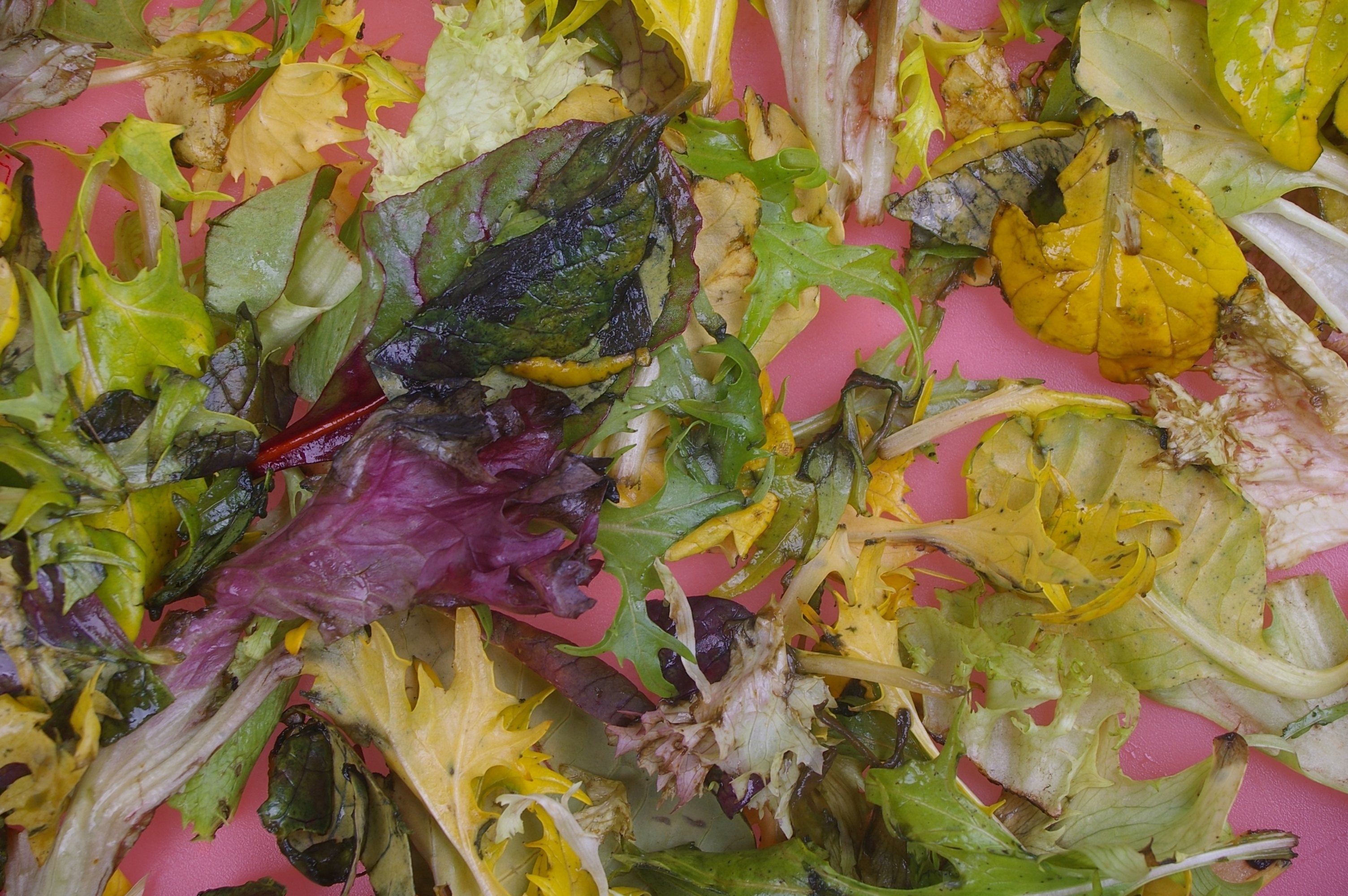Why is my Lettuce Turning Brown? It's Probably Ethylene Gas

You locate the romaine lettuce for your dinner salad in the back right corner of your refrigerator, just behind the apples, but alas, you notice brown spots on the lettuce ribs. What is the culprit? Most likely, it is ethylene gas.
Ethylene is a natural plant hormone that is released as gas. It regulates many physiological processes in both fruits and vegetables, including ripening and senescence. Almost all fruits produce some amount of ethylene gas; however, the climacteric fruits, such as apricots, produce much more ethylene gas than the nonclimacteric fruits, such as grapes and berries. And keep in mind that edible portions of vegetables that contain or carry seeds are classified botanically as fruits, such as tomatoes and squash, even though we often think of them as vegetables.
While not harmful to humans, ethylene can be very damaging to some vegetables. In addition to producing brown spots on lettuce ribs, it takes away the green in many leafy greens; it softens the skins of summer squash; and it causes some root vegetables, such as carrots, to become bitter. The storage life of those sensitive vegetables can be extended by keeping them away from fruit. This is one reason why refrigerators have drawers—it allows us to separate fruits from ethylene-sensitive vegetables.
Ethylene Sensistivity in Vegetables
Below is a list of ethylene-sensitive vegetables and herbs. Be sure to keep these away from fruits, both in your refrigerator and sitting on your counter:
Arugula
Asparagus
Beans, green
Broccoli
Brussel sprouts
Cabbage
Cantaloupe
Carrot
Cauliflower
Chard
Chives
Cilantro
Cucumber
Eggplant
Endive
Leek
Lettuce (all)
Mache
Marjoram
Mint
Onions, bulb
Oregano
Parsley
Peas, snap, snow and English
Peppers, sweet (all) and hot (some varieties)
Potato (less susceptible but ethylene may cause sprouting)
Spinach
Squash, summer
Squash, winter, including pumpkin
Tomato (yes, it is a fruit, but still sensitive to ethylene)
These vegetables and herbs are less sensitive or not sensitive to ethylene:
Artichoke
Basil
Beans, fava and lima
Beet
Corn
Garlic
Kale
Onions, bunching or green
Parsnip
Radish
Rosemary
Sage
Shallot
Thyme
Tomatillo
GardenZeus has customized growing information by plant and zip code. To get started, enter your zip code here.